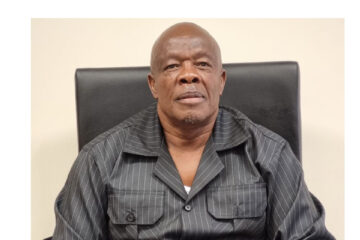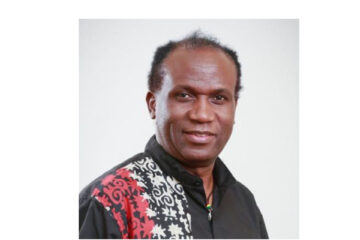ARTICLE 100 of the Namibian Constitution talks about the “Sovereign Ownership of Natural Resources,” meaning of course the country, Namibia’s, natural resources with the sovereigns being none other than the people.
But towards what end? One cannot but be prompted to ask. But before pondering this question it is apt to clarify what is meant by the country’s natural resources. Once again the constitution is pertinent as it is categorical. “Land, water and natural resources below and above the surface of the land and in the continental shelf and within the territorial waters and the exclusive economic zone of Namibia.”
Towards what end does the country has and should have sovereignty over her natural resources? Once again the Constitution is crystal clear, with Article 99, which is about the “promotion of the welfare of the people”. Entailing, among others, the enactment of legislation for the “maintenance of ecosystems, ecological processes and biological diversity of Namibia,” and most importantly and no doubt the essence of the country’s conservation endeavours, “utilisation of living natural resources on a sustainable basis for the benefit of all Namibians, both present and future”. Within the mandate of the government, in this regard, the guardianship of the resources on behalf of the sovereigns, who are the peoples as citizens of the country, is the duty and obligation of the State and government to encourage both local foreign investments, as per Article 99 of the Constitution, and to ensure that all investors, local and foreign, adhere to the provisions of an investment code.
There’s no way the Namibian State and/or government can be accused of not encouraging, especially foreign investments, if the numerous endeavours by State and/or government officials, including the various Heads of State, not excepting even the current one, are anything to go by. As much there’s no way that the country could be said to be wanting in terms of her conservation aspirations and/or policies. Her investments- attracting ambitions and aspirations may not have been effective and efficient but they have been seemingly there for all to see. Even for the politically blinded. And her conservation engagements as much, even though some of these international conservation conventions and protocols the country subscribes to, are suspect in terms of advancing the welfare and being of Namibians as opposed continuing to hamstring them.
But there’s more two both these endeavours then meets the eye. With hidden and even blatant dynamics to the equations. In terms of investments, the numerous efforts granted, the picture is far from complete. Especially if any investments are to bear any fruits, in the least from the perspective of the State and/or government, given its constitutional sacrosanct mandate and obligation of providing for the welfare and wellbeing of the citizenry. Particularly those who continue to be exploited and in the process are left out and behind. Because, despite investments trickling in as they may have been, presumably due to hard economic times globally, the country, and by extension those on the sharper end of the economic headwinds, have not been benefitting ideally as they should, if at all.
Admittedly partly because of a weak beneficiation regime. But simply boiling down to either lack of courage by the State and/or government to put in place as enjoined by the Constitution, an investment code ensuring that investments if not engendering equitable beneficiation by the sovereigns, there’s a win-win situation, whatever this may mean. But ensuring in the least that the sovereigns are and do not find themselves being shortchanged, as they seem to be and have been by would-be investors, at best, and at worse not continue to be exploited. Not to mention the essence of gradual gravitation towards meaningful and/or full ownership by the sovereigns of the natural resources. With investors providing the requisite stimulant towards the indigenes eventual better beneficiation if not ownership, eventually .
Thus, whether investments, local and foreign, may have been trickling in at the desired and meaningful level or not, still, all things must be equal for them to have any significant impact, especially on the exploited and downtrodden. A process and factor any given investment code must and should propel. As opposed to literally depositing ownership of national natural resources in investors for rampant extraction and exploitation at the expense of the country and the needy.
Yours Truly Ideologically’s indulgence of the Constitution on this instance, and in this regard, is prompted by the reality of the alienation of the sovereigns from the production and/or investment process. Despite the Constitution emphasising the ownership of the natural resources by the State and/or Namibian government on behalf of the sovereigns, the people. But a sovereignty which remains only on paper at best as far the sovereigns are concerned as they hardly let alone in managing such not to mention benefiting.
As Reverend Jan Scholtz earlier this year well reminded us and articulated the nature of colonial capitalism, that the resources of the colonised was only good for the metropoles of the colonising powers. A situation still prevalent in most of the formerly colonised countries, not excepting Namibia herself. While colonialism may be no more , these countries are still trapped in neo-colonial relations. With the former colonising powers still holding the presumably independent countries to ransom over their natural resources. Over which the so-called independent countries still have no control whatsoever. But in the name of investments and neo-colonial dispensations via various international agreements continue to exclusively serve the metropoles of the capitalist powers.
In Namibia this reality has just been brought home recently by the Minister of Environment, Forestry and Tourism, Pohamba Shifeta. When revealing that Namibia is exploring how she can benefit from the large volume of ivory and rhino horn stockpiles. In view of the global trade ban of these products.
Shifeta’s is nothing but a lamentation of the country’s inability to benefit from her resources. A pointer to big powers dictating how developing countries, including Namibia, can benefit from own resources. While these powers and their proxies, the multinational companies, unhindered and unabated, continue to exploit such resources to benefit of their metropoles and their peoples. Should one really sympathise with Shifeta? Individually perhaps but this is the making of the Namibian elite. Ostensibly happy with crumbs falling from the tables of the capitalist. Believing in their imaginations erroneously being relatively in a vintage and vantage position to benefit. While in reality they are as comprador bourgeoisie, just serving the capitalists interest of the capitalist metropoles and their peoples in a neo-colonial fashion.




